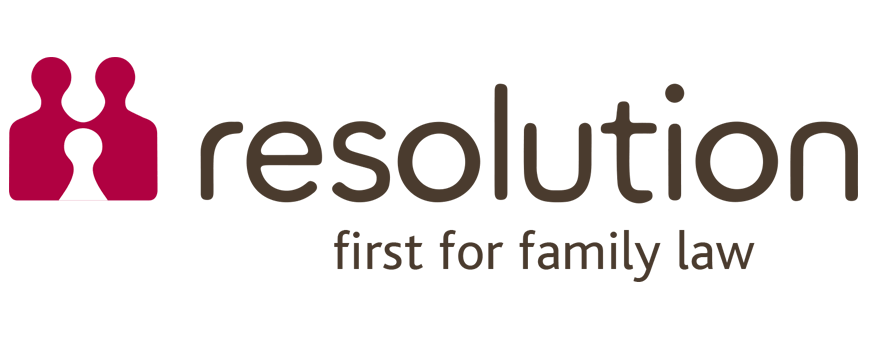- CHELMSFORD: 01245 205800
- BENFLEET : 01268 649033
Expert Children Solicitors in Essex
Resolve child custody matters with T.G. Collins solicitors. Our experienced lawyers in Essex provide legal expertise and compassionate support for a fair and favourable resolution. For expert help with all legal matters relating to children contact our team of experts.
If parents are separating, the needs of the children require special attention. The law does promote both parents having an important role to play in the child’s future life, irrespective of how the parent personally may feel about their former partner. The emphasis is very much on the child, with their best interests being the Court’s paramount consideration.
We are keen to help you resolve any disputes without the matter being referred to a Court and will discuss with you the merits of mediation and improving the communications between you and the other parent. If this cannot be achieved, we will assist you with a Court application for Child Arrangements Orders. These replaced the old style of the “Residence and Contact” orders (formerly known as “Custody” and “Access” Orders) and focus on where the children will live and when the child will spend time with each of their parents, holiday arrangements and where the child should go to school.
We also advise on Grandparents rights and Parental Responsibility Orders.

The principal aim is to come to an arrangement which is in the best interests of the child rather than the parent.
Courts do not need to become involved in child arrangements and should only ever be
asked to participate as a last resort. Parents will face criticism from the court if they have not tried their best to resolve matters by agreement, whether in person, through mediation, or solicitor-led negotiations.

The Children Act 1989 is the primary legislation concerning children, their upbringing, and welfare.
The programme applies when there is a private dispute between parents or family members about childcare arrangements.
The programme sets out the entire Family Court process, including:
Once mediation has been completed or an exemption approved, the mediator supplies a certificate. An application for a financial order can then be submitted, accompanied by the certificate, following the standard procedure or the fast-track procedure detailed below.

Parental responsibility is defined in s 3 of the Children Act 1989 as:
All the rights, duties, powers, responsibilities and authority that by law a parent of a child has in relation to the child and his property. It does not confer a right to see or spend time with a child. Nor does it grant the right to prevent the child from seeing or spending time with the other parent. It means a parent has the right to ensure the child is safe, protected, and supported in their relationships. Parental responsibility serves to identify the parties responsible for making important decisions about a child’s care and upbringing, such as:
Once mediation has been completed or an exemption approved, the mediator supplies a certificate. An application for a financial order can then be submitted, accompanied by the certificate, following the standard procedure or the fast-track procedure detailed below.

A birth mother has automatic parental responsibility for her child.
A legal parent named on a birth certificate or adoption certificate also has automatic parental responsibility.
If the parents were married at the time of a child’s birth, the father will also automatically have parental responsibility.
Artificial insemination donors and a civil partner or married partner of the birth mother will have automatic parental responsibility if they were partners at the time of treatment or are registered as the child’s legal parent on the birth certificate.
If the parents were not married or in a civil partnership, the biological father of a child who was born after 2003 or the second female parent who is not listed on the child’s birth certificate could acquire parental responsibility.
STEP-PARENTS – A step-parent can acquire parental responsibility by: OTHER PARTIES
A person can also acquire parental responsibility for a child by:
Parental responsibility agreements must be accompanied by evidence of the children’s identity and the signatories to the form.
Completed forms must be returned with copies to the local family court, where they are signed by the parties and witnessed by:
Two copies of the completed, signed, and witnessed form are sent to the following address
to be registered: Principal Registry of the Family Division

Each person with parental responsibility can act alone in meeting their responsibility: s 2(7). The legislation does not prescribe the level of consultation required between those with parental responsibility or how disputes must be managed.
Parties with parental responsibility are encouraged to attempt mediation to resolve issues before making an application to the court.
Under s8 of the Children Act 1989, the court can make the following orders for children:
Child arrangements orders set out arrangements for children following the breakdown of their parents’ relationship. Child arrangements orders typically cover:
Section 10 of the Children Act 1989 prescribes who may apply for orders, which includes:
Any person who falls within a category of person prescribed by the rules is entitled to apply for any s 8 order as may be prescribed.
In deciding to grant leave where the person applying for leave to make an application is not the child concerned the court shall have regard to:
Every person with parental responsibility for the child should be named as a respondent to a child arrangements order application.
If a party applies to vary or discharge a child arrangements order, all parties to the original proceedings should be included as respondents.
The court’s paramount concern in making child arrangements orders is the child’s welfare: s 1(1) Children Act 1989.
Live with orders
Previously referred to as residence or custody, a live with order can determine with whom a child is to reside. An order cannot determine the particular location of a child’s residence.
Orders can deal with:
Two copies of the completed, signed, and witnessed form are sent to the following address
to be registered: Principal Registry of the Family Division
Previously referred to as contact, the court can make a variety of different orders
concerning who a child is to spend time with, including:
Two copies of the completed, signed, and witnessed form are sent to the following address
to be registered: Principal Registry of the Family Division
A prohibited steps order is made under s 8 of the Children Act 1989. This order prohibits a parent or another party with parental responsibility from taking any of the steps specified in the orders without the prior consent of the court.
Prohibited steps orders commonly include prohibiting:
A specific issue order can be made under s8 of the Children Act 1989 to determine a specific question that has arisen or may arise in connection with any aspect of parental responsibility for a child including:
Grandparents do not have an automatic right to seek child arrangements orders, specific issue orders, or prohibited steps orders save in certain circumstances, for example, where the child has already been living with them for at least 12 months. Otherwise, unless the grandparent applicant already has parental responsibility, they will need to seek leave to make their application.
The court will determine an application by a grandparent based on the child’s welfare. These cases are determined on a case by case basis. Relevant considerations may include:
The court has indicated that the value of the contribution offered by the grandparent
seeking the orders is of interest. The simple fact of being a grandparent may not be
sufficient grounds to grant an order.

ExcellentBased on 207 reviews
 Abdullah Davis2024-04-25Very helpful and polite and explain everything as it goes along
Abdullah Davis2024-04-25Very helpful and polite and explain everything as it goes along Jo Skingle2024-04-19I would highly recommend the services of the Family Department at T.G.Collins solicitors. From beginning to end the process was made easy by Jigyasa. I was treated with respect, politeness and professionalism. I would recommend anyone looking to instruct a solicitor to act on their behalf for a smooth, efficient and positive outcome in a divorce settlement. Thushara and her team are amazing. The most difficult and challenging of times were made easier with honest, upfront and precise information to ensure success in my divorce settlement. Thank you to you all. Jo
Jo Skingle2024-04-19I would highly recommend the services of the Family Department at T.G.Collins solicitors. From beginning to end the process was made easy by Jigyasa. I was treated with respect, politeness and professionalism. I would recommend anyone looking to instruct a solicitor to act on their behalf for a smooth, efficient and positive outcome in a divorce settlement. Thushara and her team are amazing. The most difficult and challenging of times were made easier with honest, upfront and precise information to ensure success in my divorce settlement. Thank you to you all. Jo David Stevens2024-04-10I personally found solicitor Mrs Collins extremely helpful and totally professional in assisting me with my legal matter. Her knowledge was impeccable within every response she had given me. Rating ⭐️⭐️⭐️⭐️⭐️
David Stevens2024-04-10I personally found solicitor Mrs Collins extremely helpful and totally professional in assisting me with my legal matter. Her knowledge was impeccable within every response she had given me. Rating ⭐️⭐️⭐️⭐️⭐️ Mark Prior2024-04-09We used TG Collins to handle the sale of our house, communications were clear, service was great - everything went smoothly, would definitely use them again.
Mark Prior2024-04-09We used TG Collins to handle the sale of our house, communications were clear, service was great - everything went smoothly, would definitely use them again. LeeleeC :*2024-04-04I have been with Thushara and her team for just over a year now, using their services for child matters, divorce and financial matters and me and my family are happy and more than grateful for the way we have been listened to, respected and assisted during these difficult times.I would 100% recommend TG Collins to anybody for professional assistance.
LeeleeC :*2024-04-04I have been with Thushara and her team for just over a year now, using their services for child matters, divorce and financial matters and me and my family are happy and more than grateful for the way we have been listened to, respected and assisted during these difficult times.I would 100% recommend TG Collins to anybody for professional assistance. R K2024-03-28Did a quick Google search after getting their quote back for Conveyancing which was the cheapest. Saw lots of 5star reviews and can see why. Nitu dealt with my case and was efficient and professional. They respond very quickly to emails. Have used around 10 Conveyancing firms all together until now, they are easily the best.
R K2024-03-28Did a quick Google search after getting their quote back for Conveyancing which was the cheapest. Saw lots of 5star reviews and can see why. Nitu dealt with my case and was efficient and professional. They respond very quickly to emails. Have used around 10 Conveyancing firms all together until now, they are easily the best. Rebecca Kemal-ur-Rahim2024-03-04Simi dealt with my flat sale incredibly efficiently - there were a number of obstacles that she helped me to navigate and she was extremely helpful and patient throughout the whole process. I hope to use TG Collins again now with my next property purchase, I highly recommend them.
Rebecca Kemal-ur-Rahim2024-03-04Simi dealt with my flat sale incredibly efficiently - there were a number of obstacles that she helped me to navigate and she was extremely helpful and patient throughout the whole process. I hope to use TG Collins again now with my next property purchase, I highly recommend them. Denis Melciu2024-03-01T. G. Collins handled my divorce case in a professional manner. Very easy to work with amd reasonably priced. 100% reccomend.
Denis Melciu2024-03-01T. G. Collins handled my divorce case in a professional manner. Very easy to work with amd reasonably priced. 100% reccomend. Geoff Clarke2024-02-09Superb service, highly professional people, warm & friendly approach
Geoff Clarke2024-02-09Superb service, highly professional people, warm & friendly approach Richard Vince2024-01-30Tanisha at T G Collins was excellent to work with. She and her team kept me updated, sent me documents promptly and responded to requests for information quickly. They handled every stage of the house sale with minimum fuss and maximum efficiency, I highly recommend them.
Richard Vince2024-01-30Tanisha at T G Collins was excellent to work with. She and her team kept me updated, sent me documents promptly and responded to requests for information quickly. They handled every stage of the house sale with minimum fuss and maximum efficiency, I highly recommend them.


All Rights Reserved © 2024 | T.G. Collins Solicitors